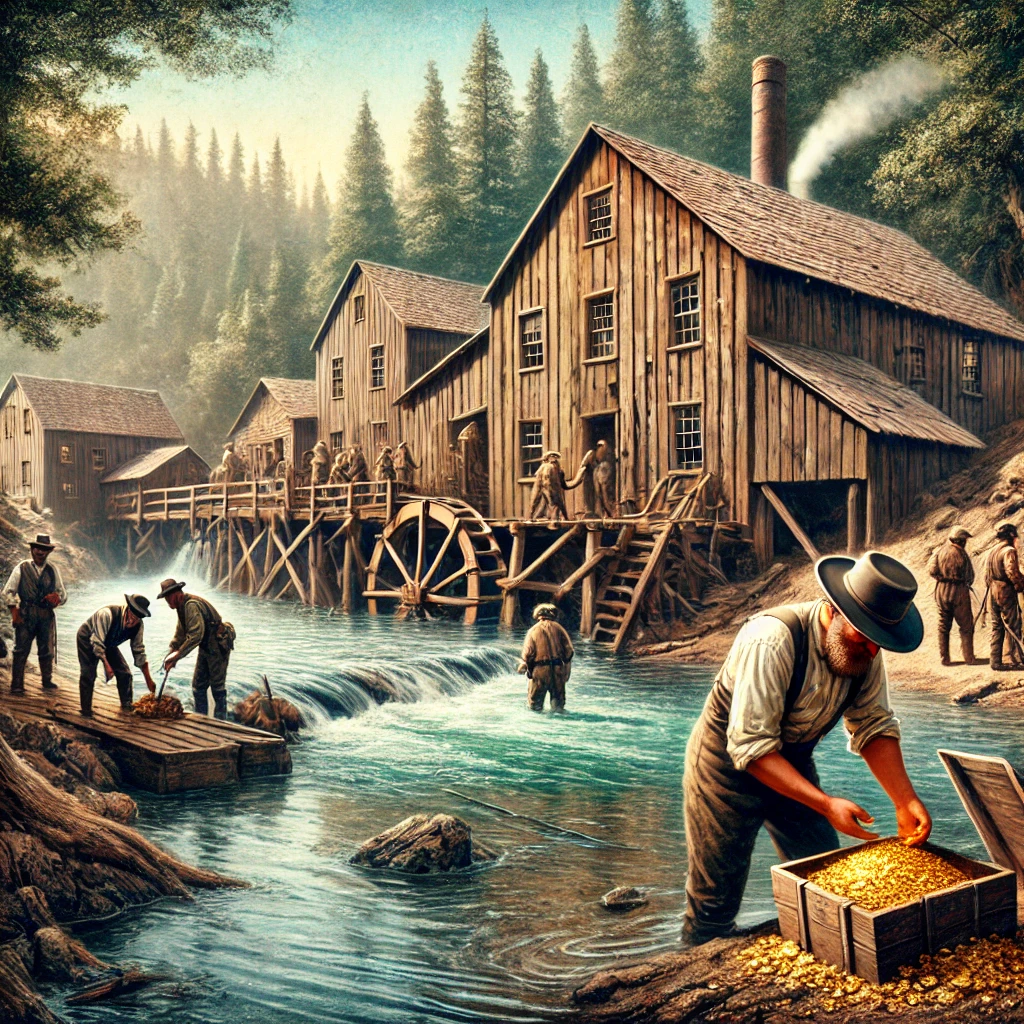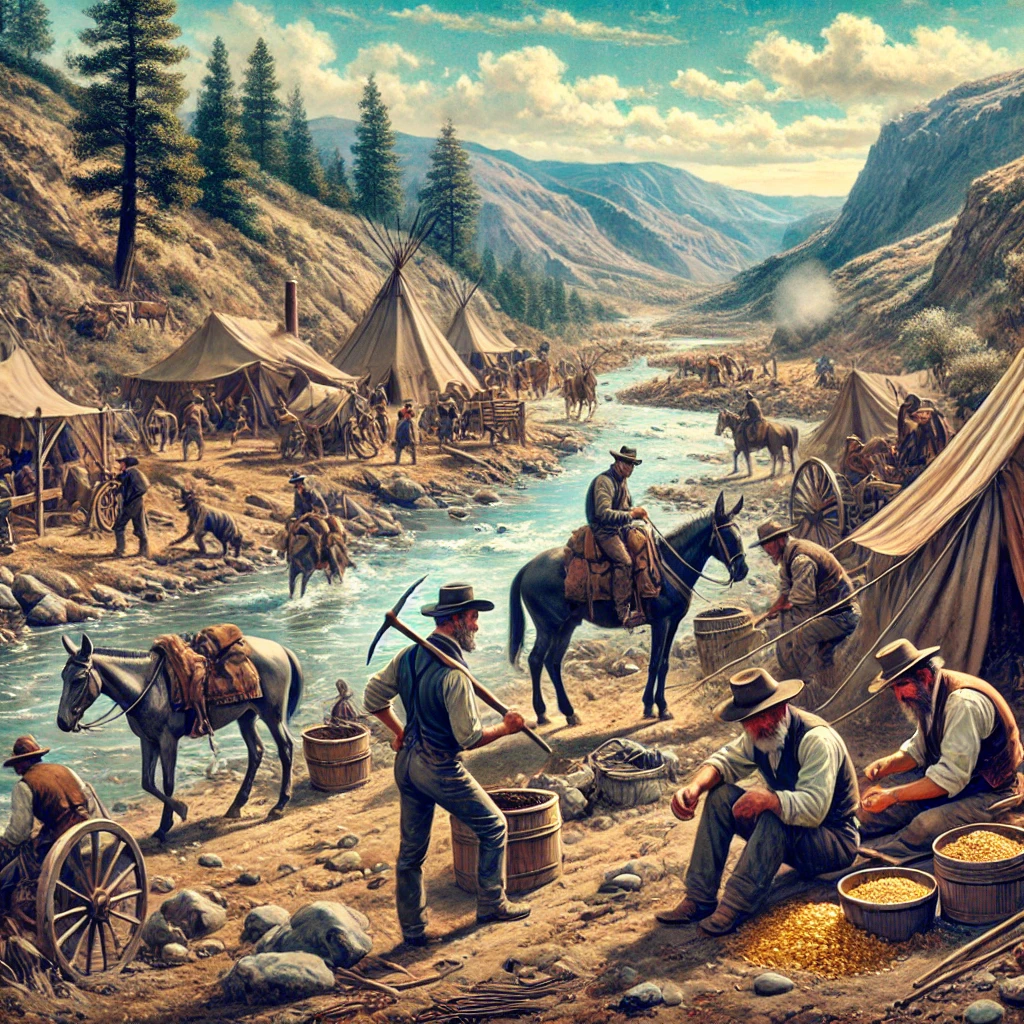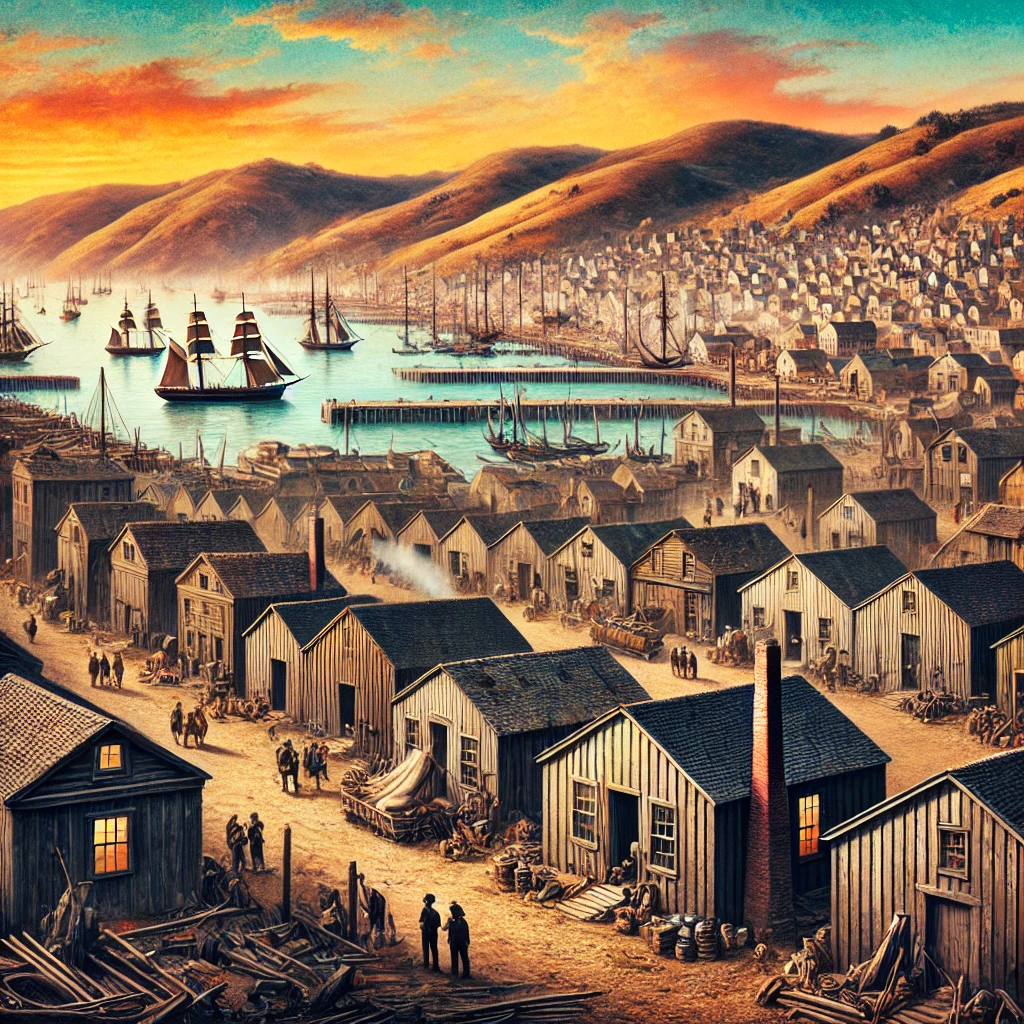A transformative event in American history occurred on January 24th, 1848, as gold was discovered at Sutter’s Mill in California, setting off the famous California Gold Rush. This moment not only reshaped the economic, social, and political landscape of the United States but also left a lasting impact on the global stage. The discovery’s consequences still resonate in various ways today.

The Discovery at Sutter’s Mill
James W. Marshall, a carpenter working for John Sutter, stumbled upon shiny flakes in the American River near Coloma, California. Upon closer examination, these flakes were confirmed to be gold, igniting an unprecedented rush of fortune seekers. Sutter initially tried to keep the discovery a secret, fearing the disruption it could bring to his agricultural empire. However, word quickly spread, and by late 1848, people from across the United States and even abroad began their journey westward.
The news of gold at Sutter’s Mill traveled far and wide, thanks to newspapers, letters, and even word of mouth. By 1849, the “49ers,” as the gold-seekers were called, flooded California, dramatically increasing its population from just a few thousand to over 100,000 within a year.

Significance in American History
The California Gold Rush profoundly shaped the United States’ trajectory. Economically, it injected vast amounts of wealth into the young nation, fueling industrial development and infrastructure projects. San Francisco transformed from a sleepy village into a booming city, becoming a vital economic and cultural hub.
Politically, the Gold Rush expedited California’s admission to the Union as the 31st state in 1850. Its rapid growth and strategic importance shifted national attention to the West, fostering debates over slavery and the balance of power between free and slave states.
Socially, the Gold Rush was a melting pot of cultures. Immigrants from China, Europe, and Latin America arrived, each bringing unique traditions and challenges. While the diversity enriched California’s cultural tapestry, it also led to conflicts, particularly with Native American populations and immigrant communities facing discrimination and exploitation.
Lasting Impact on Modern Society

The Gold Rush left an indelible mark on the economic and cultural identity of California and the United States. Its legacy is evident in California’s nickname, “The Golden State,” and its enduring reputation as a land of opportunity.
The infrastructure built during the Gold Rush era, including roads, railways, and ports, laid the groundwork for California’s development into a global economic powerhouse. Additionally, the influx of diverse populations established California as one of the most multicultural regions in the world.
The environmental impact of the Gold Rush also provides lessons today. Hydraulic mining, a common practice during the period, caused significant ecological damage, prompting early discussions on environmental conservation and responsible resource extraction.
